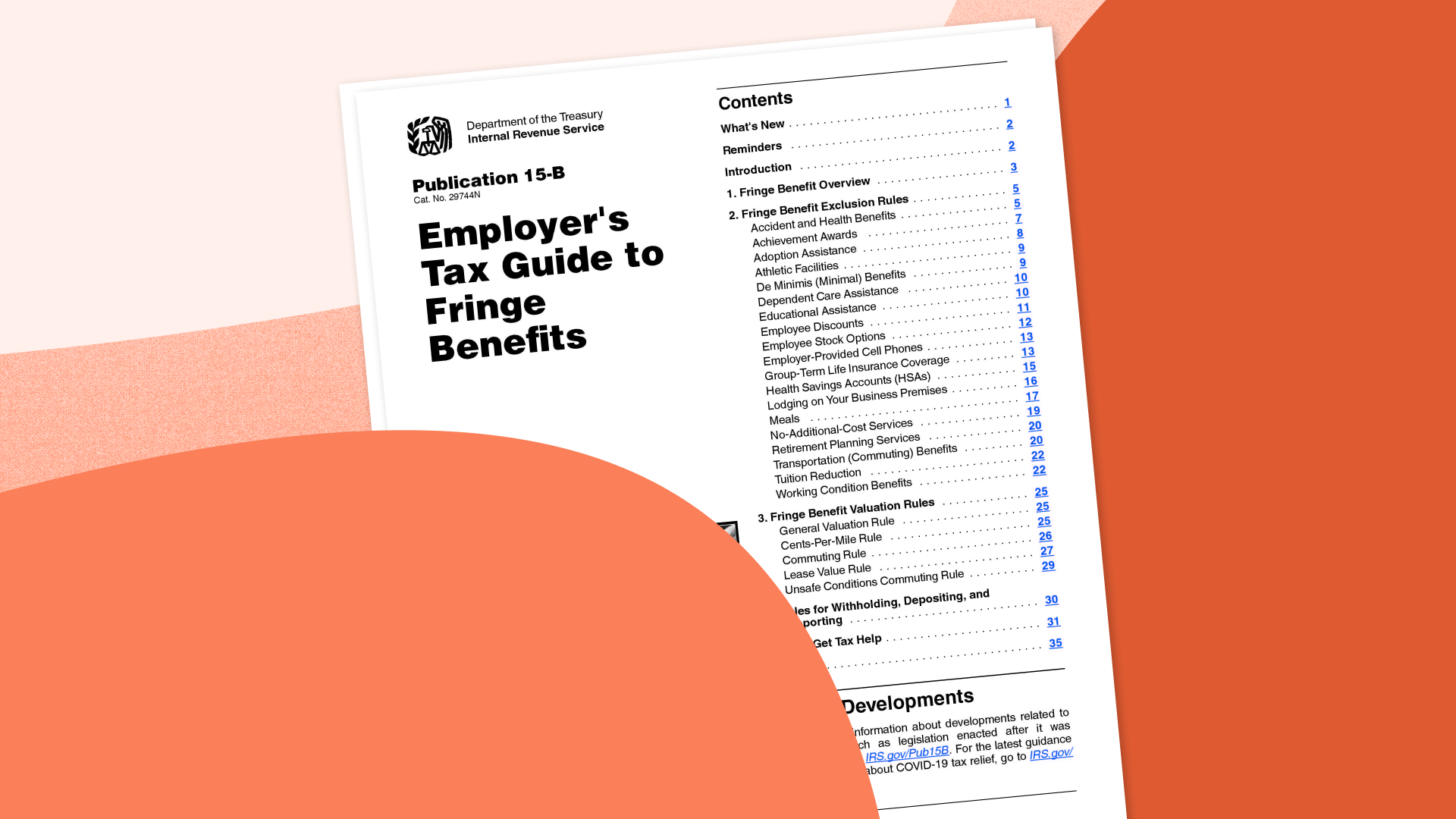What is Deferred Compensation?
Types of Deferred Compensation
Drawbacks of Deferred Compensation
Deferred Compensation Planning
Making Sense of Deferred Compensation
Justworks Can Help
Deferred compensation is a term that often comes up when discussing employment benefits or financial planning. If you’re wondering what exactly deferred compensation means and how it’s relevant to you, you’ve come to the right place. Here, we’ll break down the concept of deferred compensation, various types, and explore key pros and cons to consider.
What is Deferred Compensation?
Deferred compensation is an agreement between an employer and an employee in which a portion of the employee's income is paid out at a later date instead of the present time. Deferred compensation is sometimes paid out during retirement, following separation from employment, or after a certain period of time has passed.
With deferred compensation, the main idea is to defer some of your income to a future date, which may be during a time when you are in a lower tax bracket, thereby reducing your current taxable income and your overall tax burden. High-income earners frequently use this strategy to manage their tax liabilities more effectively.
Types of Deferred Compensation
There are two primary types of deferred compensation plans: qualified and non-qualified.
1) Qualified Deferred Compensation Plans
Qualified deferred compensation plans are regulated by the Employee Retirement Income Security Act (ERISA). Examples include 401(k) plans, 403(b) plans, and 457 plans. Contributions to these plans are tax-deferred, and the earnings grow tax-free until withdrawal.
a. 401(k) Plans A 401(k) is one of the most common types of deferred compensation plans. Employees can contribute a portion of their salary to the plan up to a certain annual cap, and employers can match these contributions up to a certain percentage.
b. 403(b) Plans
These plans are similar to 401(k) plans but are offered by non-profit organizations, schools, and certain hospitals. They allow employees of these types of organizations to contribute a portion of their salary on a tax-deferred basis, with employers often matching a certain percentage of employee contributions.
c. 457 Plans
457 plans are offered to state and local government employees and some non-profit organizations. They operate similarly to 401(k) and 403(b) plans but have different contribution limits and withdrawal rules.
2) Non-Qualified Deferred Compensation Plans (NQDC)
ERISA does not regulate non-qualified deferred compensation plans, so employers have more flexibility in how they are designed. Non-qualified plans are typically used to provide additional benefits to high-earning employees, such as executives. Examples include:
a. Supplemental Executive Retirement Plans (SERPs)
SERPs are employer-sponsored plans that provide additional retirement income to executives. These plans are often used to attract and retain top talent.
b. Deferred Savings Plans
Deferred savings plans allow eligible employees to defer a portion of their salary or bonus to a future date. The deferred amounts grow tax-free until they are paid out.
Drawbacks of Deferred Compensation
While there are many benefits to deferred compensation, there are also some potential drawbacks to consider:
Risk of Employer Insolvency
One of the main risks of non-qualified deferred compensation plans is the potential for loss if the employer experiences bankruptcy. In this case, it’s possible to not receive your accrued deferred compensation, as it may be considered an unsecured debt.
Limited Access to Funds
Deferred compensation plans typically have restrictions on when you can access the funds. This can make it challenging to access your money in case of emergencies or unexpected expenses.
Tax Implications
While deferred compensation can provide tax benefits, it also has tax implications. When you receive the deferred compensation, it will be taxed as ordinary income. This could result in a higher tax liability if you are in a higher tax bracket than at the time it was deferred. .
Plan Complexity
Non-qualified deferred compensation plans can be complex and may require careful planning and management. It’s essential to understand the terms and conditions of the plan and consult with a financial advisor to ensure it aligns with your overall financial goals.
Deferred Compensation Planning
To make the most of deferred compensation, it's essential to have a well-thought-out plan. Steps to help you get started include:
Step 1: Assess Your Financial Situation
Before participating in a deferred compensation plan, assess your current financial situation. Determine your short-term and long-term financial goals, then consider how deferred compensation fits into your overall financial plan.
Step 2: Understand the Plan
Make sure you understand the specific terms and conditions of the deferred compensation plan, including things like the vesting schedule, distribution options, and any potential risks associated with the plan.
Step 3: Consult a Financial Advisor
A financial advisor can help you navigate the complexities of deferred compensation planning. They can provide guidance on how to maximize the plan’s benefits while minimizing potential risks.
Step 4: Monitor and Adjust
Your financial situation and goals may change over time, so it’s important to review your deferred compensation plan and adjust as needed regularly and as allowed by the plan or arrangement. This can help ensure that your plan continues to align with your financial goals and adapt to any changes in your financial situation.
Making Sense of Deferred Compensation
Deferred compensation can be a valuable tool for managing your income, reducing your tax liability, and planning for retirement. By understanding the basics of deferred compensation and working with a financial advisor, you can make informed decisions that will help you achieve your financial goals.
Whether you're an employee looking to maximize the employee benefits available to you or an employer seeking to attract and retain top talent, deferred compensation can offer significant advantages. However, it's essential to carefully consider the potential risks and drawbacks and ensure that your plan aligns with your overall financial strategy.
Justworks Can Help
If you’re a small business owner or founder, Justworks is here to help. Justworks helps small businesses pay their teams and save time through automated payments, tax calculations, and withholdings. If you’re ready to offload admin and focus on growing your team, get started today!
Learn more with Justworks’ Resources
Scale your business and build your team — no matter which way it grows. Access the tools, perks, and resources to help you stay compliant and grow in all 50 states.








